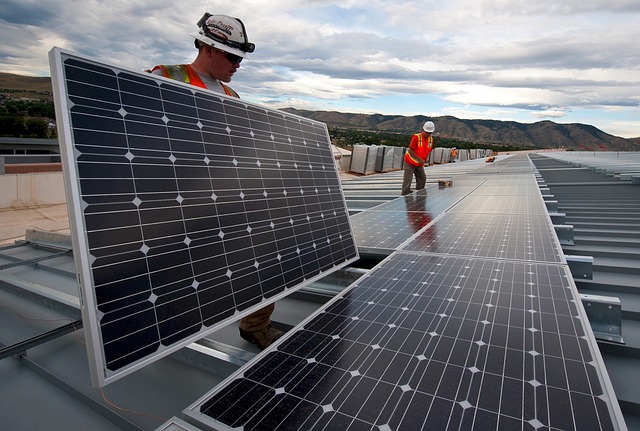clear
Can renewable energy counter the effect of climate change?
clear

source:
Skeeze / Pixabay
The question makes two assumptions, not explicitly stated but it's clear from the context what is implied:
Climate is changing
The use of fossil fuels for energy is at least partly the cause of climate change.
First assumption: “Climate is changing”. Yes, it is. It always has done and always will.
Second assumption: fossil fuels contribute to climate change. This is unproven – see my answer to question “To what extent is climate change caused by human factors?”
However, let’s for the sake of argument assume that fossil fuels affect the climate. In that context will the use of renewables make a difference?
There are many points to consider.
All renewables are intermittent. No wind, wind turbines don’t work. No sun, solar panels don’t work. No waves, wave power doesn’t work. Between tides, tidal power doesn’t work.Therefore there has to be an alternative for these breaks in supply. And there’s no point in arguing that if one isn’t working another will take the slack. For example, over northern Europe in winter, with very short days, there is often a static high-pressure system that brings cold, clear weather with no wind. This can last for several days. This gives peak demand with almost no contribution from renewables.
Batteries can store unwanted energy to cover these periods of low renewable generation. However the technology is years away from being viable. The largest battery array ever installed, in December 2017 in South Australia, has the capacity to power 30,000 homes for… ONE HOUR.
So dependable energy sources – fossil fuel or nuclear – must continue to be available. But using them intermittently to cover shortfalls from fluctuating renewables is inefficient, and running power plants on standby creates CO2 for no use at all.
Solar panels and wind turbines don’t grow on trees. The cost of mining and transporting special metals to the factory, the transportation of finished goods, the ground preparation, the de-commissioning of obsolete units, the maintenance – all require energy. According to some calculations the energy generated by an individual wind turbine is less than the energy required to build and maintain it. If this is true then clearly renewables are a total WASTE of resources.
So – the calculations to answer the question are extremely complex. In any case why bother with renewables when fossil and nuclear are reliable and, as yet, have not been proven to affect the climate.
 0
0
clear
To disagree with the earlier answer, fossil fuels release nitrious oxide into the atmosphere which research suggests contributes to our damaged Ozone layer and, consequently, global warming. Consequently, by reducing the amount of fossil fuels we use in favour of renewable energy sources, we will undoutedbly reduce the rate of climate change; however, whether or not we can reverse the effects is yet to be discovered. In 2017, "more than 250 US mayors committed to procure 100% renewable energy for their cities by 2035, thereby providing a significant boost to climate action," which shows that those with authority care about renewable energy sources as a method of reducing the effects of climate change. Although, I do believe that while changing to renewable energy will benefit the environment long-term, I'm unconvinced that it will be reverse the damage that has already been done. In turn, we will also need to change the way of life for billions of people across the globe because the way we live simply isn't sustainable long-term.
 0
0
clear
Scientists estimate that by keeping the CO2 concentration scenario, we need to reduce CO2 emissions by 90% by the 2070s in the energy sector. - i.e. practically abandon fossil fuels. Summarizing the 1200 mitigation scenarios, it is concluded that one of the most important steps is to increase energy without CO2 in total energy production by at least 3-4 times by 2050. This requires the development of renewable energy and increasing energy efficiency.
Renewable energy remains the only clean and reliable source of energy. Among other non-CO2 sources, the report also mentions nuclear energy and CO2 capture and storage technologies, but it does not neglected the huge risks and costs associated with these technologies. At present, energy security in Lithuania and in Europe will also be strengthened by the development of local renewable energy.
 0
0
clear
 Ignas Mikalauskas
5 years, 8 months ago
Ignas Mikalauskas
5 years, 8 months ago